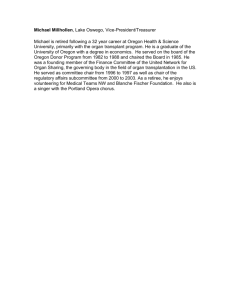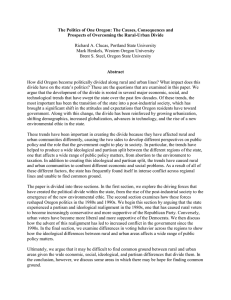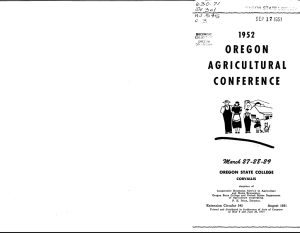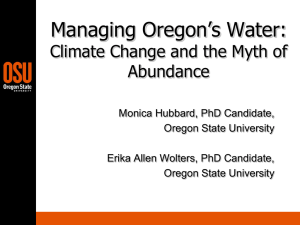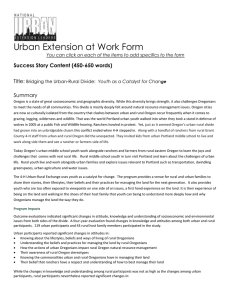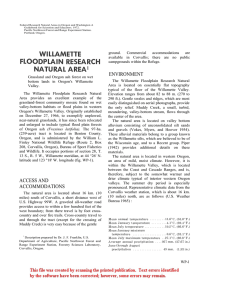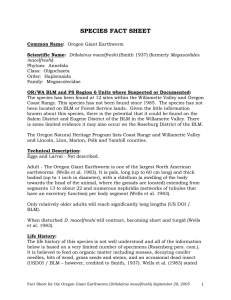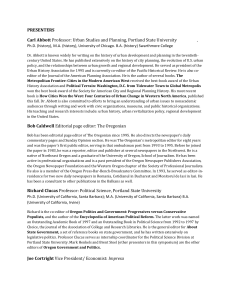Country and City in Oregon: A Conflicted Legacy
advertisement
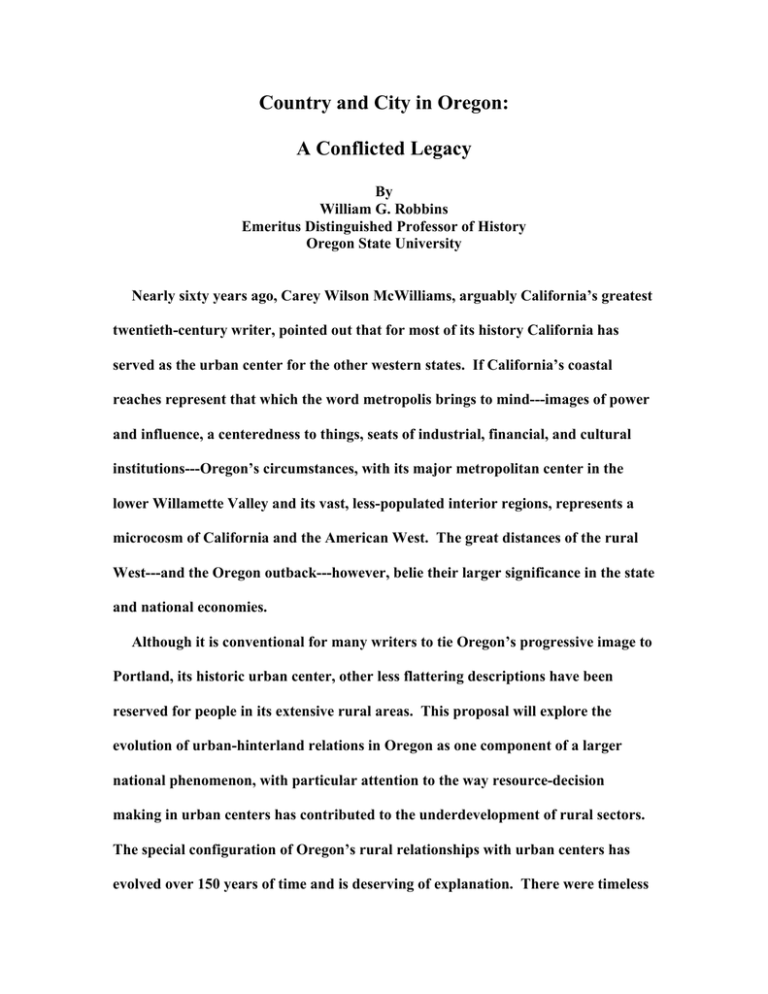
Country and City in Oregon: A Conflicted Legacy By William G. Robbins Emeritus Distinguished Professor of History Oregon State University Nearly sixty years ago, Carey Wilson McWilliams, arguably California’s greatest twentieth-century writer, pointed out that for most of its history California has served as the urban center for the other western states. If California’s coastal reaches represent that which the word metropolis brings to mind---images of power and influence, a centeredness to things, seats of industrial, financial, and cultural institutions---Oregon’s circumstances, with its major metropolitan center in the lower Willamette Valley and its vast, less-populated interior regions, represents a microcosm of California and the American West. The great distances of the rural West---and the Oregon outback---however, belie their larger significance in the state and national economies. Although it is conventional for many writers to tie Oregon’s progressive image to Portland, its historic urban center, other less flattering descriptions have been reserved for people in its extensive rural areas. This proposal will explore the evolution of urban-hinterland relations in Oregon as one component of a larger national phenomenon, with particular attention to the way resource-decision making in urban centers has contributed to the underdevelopment of rural sectors. The special configuration of Oregon’s rural relationships with urban centers has evolved over 150 years of time and is deserving of explanation. There were timeless qualities between center and periphery, the great European historian Fernand Braudel argued, in which the latter were “subordinates rather than true participants” in a reciprocal relationship. There were historically “fewer advantages as one moved away from the triumphant pole,” he observed. This paper will illustrate the manner in which those characteristics have endured through most of Oregon’s history, with some dramatic changes in recent times as capital investment has shifted from resource extraction to a variety of outdoor amenities.



